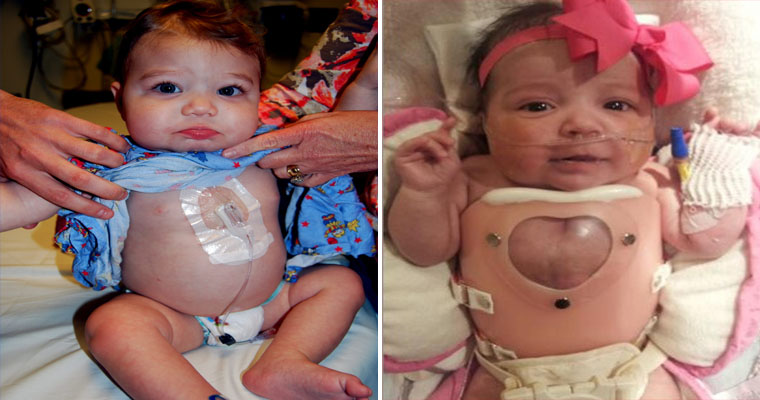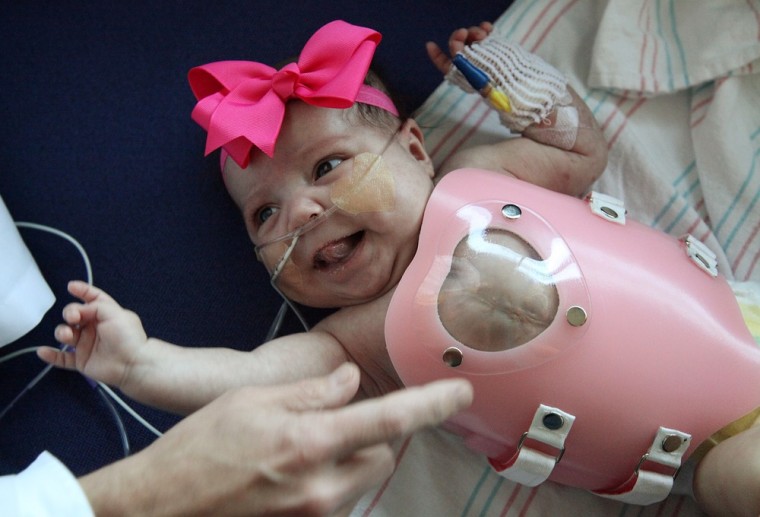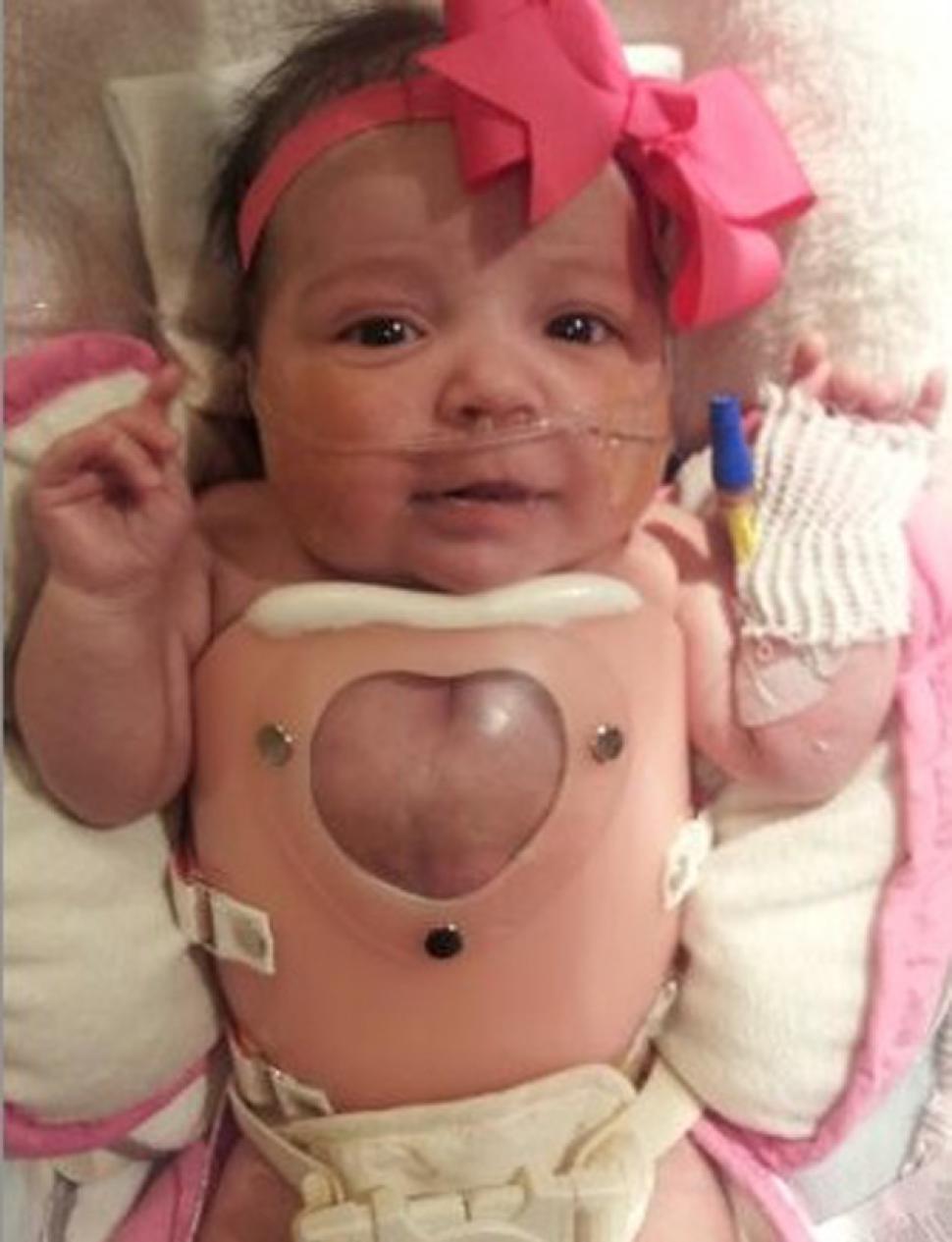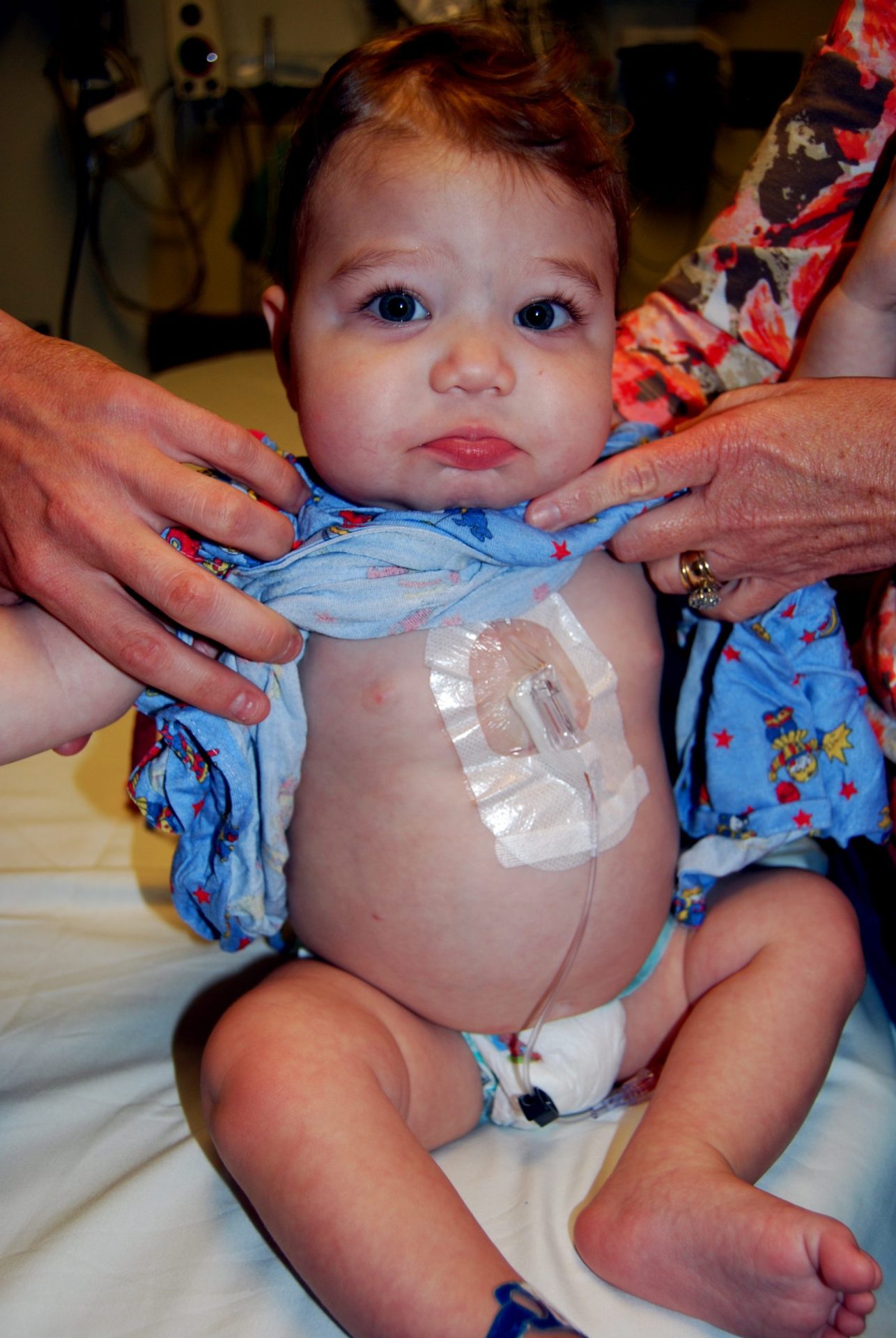Baby Audrina, Born with Her Heart Outside Her Body at Only 3 Months Old
In the years ahead, the infant will need a second operation to implant a more permanent shield within the thorax. This measure will ensure adequate protection and functionality of the infant’s heart.
Following the surgery, a team of specialists and pediatric cardiologists at the hospital where the procedure took place will closely monitor the infant. Doctors will assess the infant’s health and track their progress to ensure a smooth recovery.
The infant has successfully undergone surgery and is in the process of gradual recovery. Consistent monitoring and attentive care from the medical team will guarantee a healthy future for the infant, allowing them to grow and develop like any other child.
The successful surgical procedure has been completed, and the infant is currently on the path to recovery. This recovery phase will require specialized medical attention and regular monitoring.
Throughout this procedure, your baby will be closely observed to ensure the proper functioning of the heart and to prevent any potential complications. Pediatric cardiologists and cardiologists will perform regular examinations and tests to evaluate your infant’s progress.
In addition to medical monitoring, your family will also receive guidance on how to care for the infant’s health condition at home. This might involve watching for any signs of abnormality, adhering to care and medication schedules, and creating a safe and nurturing environment.
Your infant can also be placed on a suitable diet and exercise regimen to enhance the growth and function of their cardiac muscles. The family will receive guidance on these aspects to ensure the baby’s optimal health and development.
With the dedicated care of the medical team and the unwavering support of the family, the infant can overcome the challenges and look forward to a healthy future. Ongoing monitoring and routine care will enable the infant to lead a normal life without future heart-related complications.
After the recovery from surgery, your infant will continue to receive long-term monitoring and routine care from a specialized medical team. Periodic assessments will be carried out to ensure the heart’s normal growth and function.
Pediatric specialists and cardiologists will conduct various tests and exams, such as echocardiograms, blood tests, and health measurements, to track your infant’s progress. They will be vigilant for any unusual signs or symptoms and make necessary adjustments to the care plan.
The family will receive daily care instructions to maintain the infant’s health. This may encompass a nutritious diet, appropriate physical activity, and precautions against stress and environmental pollutants that could affect the heart.
Furthermore, the family will be educated about safety measures to prevent complications. This might involve minimizing exposure to infections, practicing good hygiene, and avoiding activities that pose a risk to cardiovascular health.
Throughout this journey, collaboration between the family and the medical team is crucial. By adhering to the care plan, the infant can continue to grow and lead a normal life, albeit with certain heart-related considerations.
In the event of heart-related problems or complications, the medical team will recommend interventions and adjust care as needed. This might involve altering medications, rescheduling tests, or even considering additional surgeries.
It’s also important for families to be aware of warning signs and emergency procedures. This knowledge ensures prompt action in case of medical emergencies like cardiac arrest, severe breathlessness, or arrhythmia. Families should also have quick access to the medical team’s contact information for immediate assistance.
Throughout this journey, emotional and psychological support are equally vital. Families and infants may benefit from specialized support groups and counselors who understand the challenges associated with a heart condition.
The monitoring and care for the infant will continue into adulthood. The medical team will consistently evaluate the infant’s health, monitor their growth, and tailor the care plan to meet their specific needs.
Despite the challenges and limitations posed by cardiac health, with proper support and care, a baby can lead a fulfilling life and engage in everyday activities just like any other child.
Hits: 3









